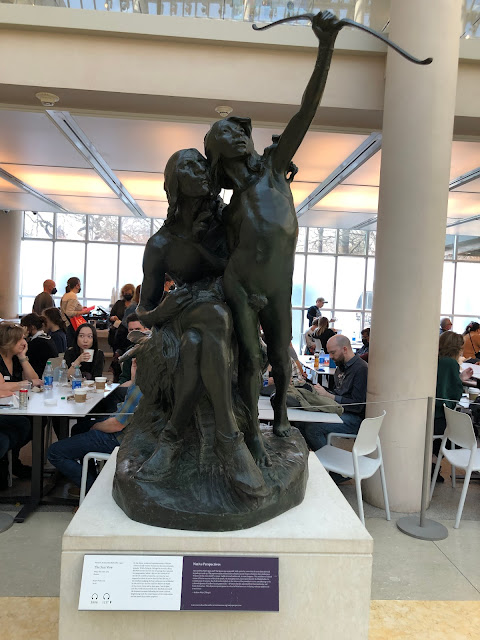Hermon Atkins McNeil, The Sun Vow (at the NY Metropolitan Museum of Art):
Note the card displayed below--on the left, in black on white: "By the 1890s, sculptural representations of Native American and western themes had become extremely popular. While living in Chicago in the early 1890s, MacNeil had learned of a rite of passage that captured his imagination: before a boy on the threshold of manhood could be accepted as a warrior, he was required to shoot an arrow directly into the sun. If the chieftain judging the boy's prowess was so blinded by the sun's rays that he could not follow the flight of the arrow, it was said to have gone 'out of sight,' and the youth had passed the test. MacNeil portrayed the dramatic moment following the arrow's release, heightening both the visual impact of the composition and the sense of narrative suspense."On the right, in white on black: "How will MacNeil's story end? The figures are suspended, held captive by a vow that the artist later admitted he perhaps made up. This representation of the futility of Indian action fosters a belief in their aimlessness. Where will the arrow land? It cannot. Ineffective and undirected, it must disappear. This reinforces a limited vision of Native success in which the youth, the next generation, must move beyond the blinded elder. In a celebration of naivety, the child smiles slightly at the release of the powerless arrow, contributing to the acknowledgement of landless future generations--of Natives forcibly separated from their territories, and from themselves. This depiction participates in a ritual of blindness to a civilizing violence understood as necessary.--Jackson Polys (Tlingit)"


No comments:
Post a Comment